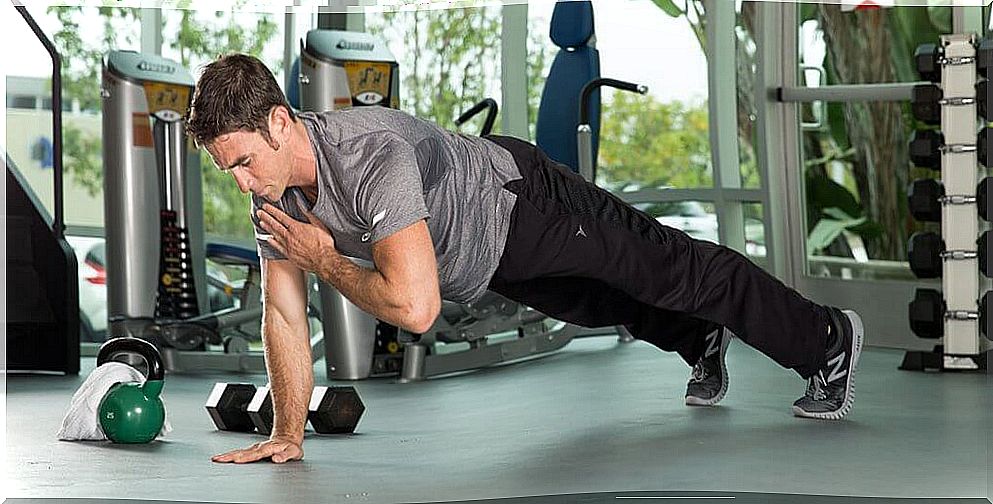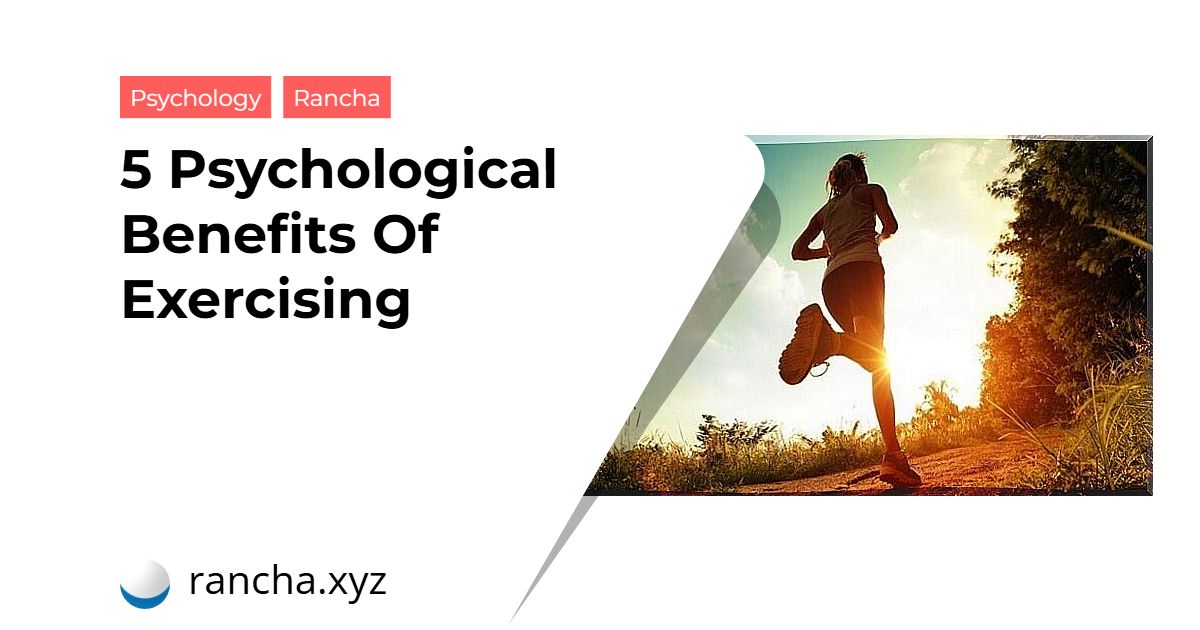Exercise helps to maintain good health and to prevent various diseases. In fact, exercising regularly is an excellent way to clear your mind, make decisions and achieve emotional well-being. In other words, there are also many psychological benefits of exercising.
We are used to thinking that mind and body are two different realities that are unrelated. But it’s not true. Body and mind mold each other, work together and are not isolated. In fact, the relationship of these two aspects and the way they work are fundamental to our health.
Researchers have found that regardless of age or physical condition, exercise has magnificent effects on learning abilities and emotional well-being. Many emotional problems are regulated and can best be treated based on sports and physical activity. To look at this fact in more detail, let’s look at some of the psychological benefits of exercising.
The psychological benefits of exercising
1. Increases self-esteem
How is it possible that physical exercise changes an aspect as internal as self-esteem? Simply because, by carrying out activities to care for the body and expanding the limits of physical demands, we also increase the positive perception we have of ourselves.

After exercising, we experience a feeling similar to what it feels like to achieve something. This, therefore, increases the appreciation we have for ourselves and what we do. Furthermore, physical exercise has the property of improving appearance in a relatively short period of time. The skin invigorates, the body is toned and all of this together makes us look more attractive.
2. Activates the chemistry of happiness
One of the effects of physical exercise on the brain is the activation of the production of endorphins, chemicals that act as neurotransmitters. Its function is to reduce physical pain, almost like a medicine and, at the same time, create a feeling of happiness.
For this reason, physical exercise is highly recommended for those who have symptoms of depression or are simply “in low spirits”. In fact, doing 15 to 20 minutes of exercise is very beneficial when we feel sad.
3. Reduces stress and anxiety
Physical activity is an excellent way to reduce muscle tension, which significantly affects states of stress. On the one hand, it has a distraction function that reduces mental alertness and reduces anxiety levels. On the other hand, the recreational character of exercise and sports provides the release of many emotional tensions.

In addition, physical exercise and sports contribute to the reabsorption process of “cortisol”, also known as “the stress hormone”. When you are afraid, anxious and anxious, there is a significant amount of this hormone in your body. When performing physical activities, the body absorbs it and this is reflected in the reduction of stress.
4. Protects against cognitive impairment
Sports and exercise not only have a wonderful effect on our moods. These activities are also decisive in our cognitive abilities. If physical activities are performed frequently, they increase the level of various chemicals in the brain that prevent the degeneration of some neurons in a region called the “hippocampus”.
In other words, exercise helps our brain to keep working well over the years. Sedentary people are more likely to suffer from diseases such as Alzheimer’s when they reach older ages.
5. Facilitates the control of addictions
Physical exercise proved to be an excellent motivator for those who want to quit smoking. In addition to helping to restore lung capacity, it also helps to reduce the side effects of withdrawal.
Physical activity is wonderful as a complement to the processes of stopping certain habits and detoxifying in many ways. On the one hand, it increases the sense of control over one’s behavior. On the other hand, it helps to build healthy lifestyle habits and reduces withdrawal syndrome symptoms.

These are just some of the wonderful psychological benefits of exercising. As you can see, you don’t need to become an athlete. The ideal is to be able to do at least 15 to 20 minutes of exercise a day. If that’s not possible, try starting with half an hour three days a week. You’re sure to quickly notice the effects.
 rancha.xyz Be free to choose their own route to self-knowledge, health and balance of body and soul.
rancha.xyz Be free to choose their own route to self-knowledge, health and balance of body and soul.




